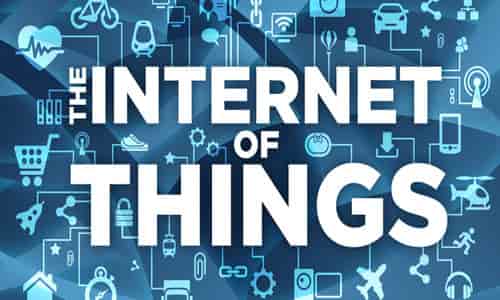US Intelligence Chief: The Internet of Things Is a Great Way to Spy on You
 By Kade Hawkins February 15, 2016
Share this article:
By Kade Hawkins February 15, 2016
Share this article:
Homes around the world are becoming smarter and more connected
than ever before, ranging from toasters to bedsheets, light bulbs,
cameras, toothbrushes, door locks, cars, watches and other wearables.
Few of us take the time to consider what impact the
Internet of Things might have on personal privacy and even personal
safety. While your laptops, smartphones and other connected devices are
equipped with advanced software systems, your connected home devices may
be less secure.
2008 was the first year there
were more devices online than people. By the year 2019, it's estimated
that 1.9 billion devices that connect homes to the Internet will be in
place. That's potentially 1.9 billion opportunities for hackers to get
into your home.
But hackers aren t the only ones
who can access your data and invade your privacy. James Clapper, US
director of national intelligence, publicly admitted for the first time
that intelligence agents might take advantage of the new possibilities
presented by the Internet of Things to increase their surveillance
capabilities.
That means that your smart TV,
home security camera, fridge, and anything else that connects to the Web
to allow you to control them remotely could be used by intelligence
services for a range of spying opportunities that include
identification, surveillance, monitoring, location tracking, and
targeting for recruitment, or to gain access to networks or user
credentials.
The "surveillance economy" as it's
sometimes called is not a new idea, but modern technology has made
every last detail of our lives recordable and sellable.
How
many are so anxious to install an app on their smartphones that they
totally ignore the extensive "permissions" to which they must agree in
order to install and use the app? Many apps insist on having access to
every other application and data on your phone, including contacts,
email, texts and photos, often when there is no legitimate reason for
that connection.
Google and Facebook are
examples of companies profiting from the surveillance economy. These
companies use your browsing behavior and clicking patterns to target
advertisements. If you recently clicked on a car ad or searched a
vacation destination, it should not surprise you that related ads follow
you around from site to site for weeks. Companies make an enormous
profit selling this information to retailers.
Most
consumers are not aware that a large number of connected devices aren't
properly secured making it easier for attackers to access information
about your life, to steal data, or to disconnect home alarm systems.
There is even a search engine that allows you to peep into people s home
through unsecured cameras.
The trouble is people accept internet surveillance
because they don t really think about it. They are not aware of the type
of data their newly acquired refrigerator or thermostat is collecting
and how it s being stored. Only last year people found that Hello
Barbie , a conversational doll from Mattel, was vulnerable to cyber
attacks. A skilled hacker could have easily gained control over the doll
to intercept and record conversations.
By
connecting multiple devices into a single ecosystem, you are creating an
accurate map that gives information about your recent activities, your
movements, and your habits. And, as US Intelligence Chief, James
Clapper, made clear, it s not that hard to access and gain control over
your personal data in real time and record communications.
Some
devices like Samsung's Smart TV recently came under scrutiny for
revealing that ability in its privacy policy which advised owners not to
disclose "personal or other sensitive information [because] that
information will be among the data captured and transmitted to a third
party through your use of Voice Recognition".
One
startup company in India, called Silverpush, is even trying to figure
out a way to link information about all the different wireless devices
you own. It embeds inaudible sounds into the webpages you read and the
television commercials you watch. Software secretly embedded in your
computers, tablets, and smartphones picks up the signals, and then uses
cookies to transmit that information back to SilverPush.
The
result is that the company can track you across your different devices.
It can correlate the television commercials you watch with the web
searches you make. It can link the things you do on your tablet with the
things you do on your work computer. And soon that could be expanded
to the multiple devices in your home that could range from what you have
in your fridge to how often you drive your car
There
is no escape from the Internet of Things and it's only a matter of time
before our every action is watched, recorded and tracked 24/7. No
detail will be too small, even our sleep patterns are now being analyzed
thanks to the wearable Fitbit.
These
technologies can have incredible benefits and many of us now rely on
such advancements to function on a daily basis. However, we should not
be blind to the dangers of abuse from both hackers and even the
government itself when privacy no longer exists.

No comments:
Post a Comment